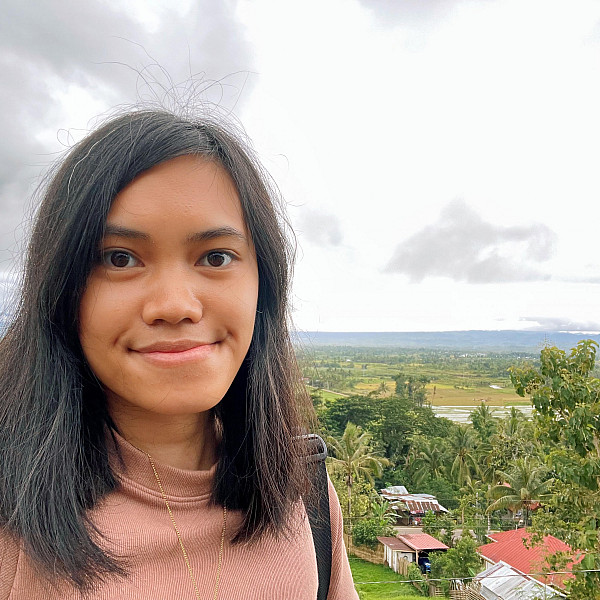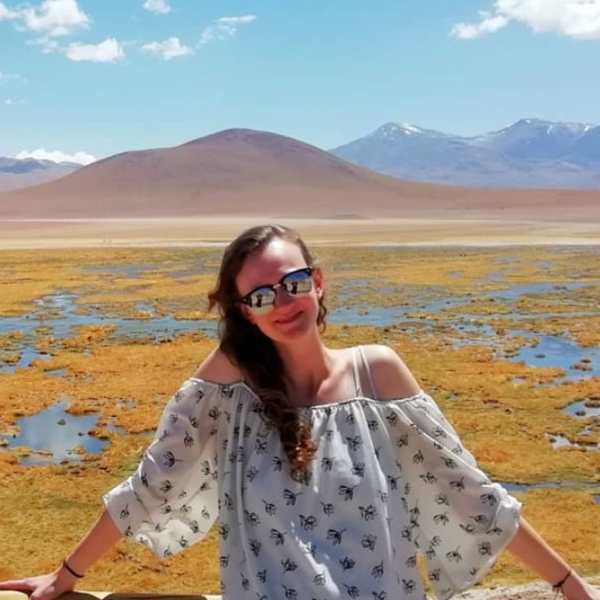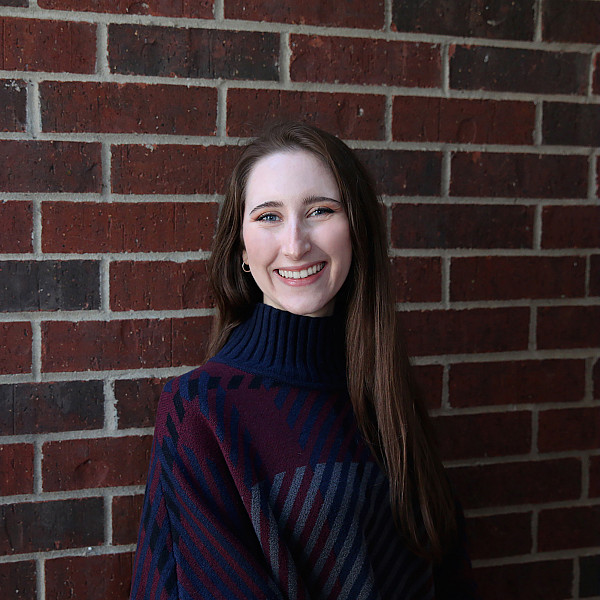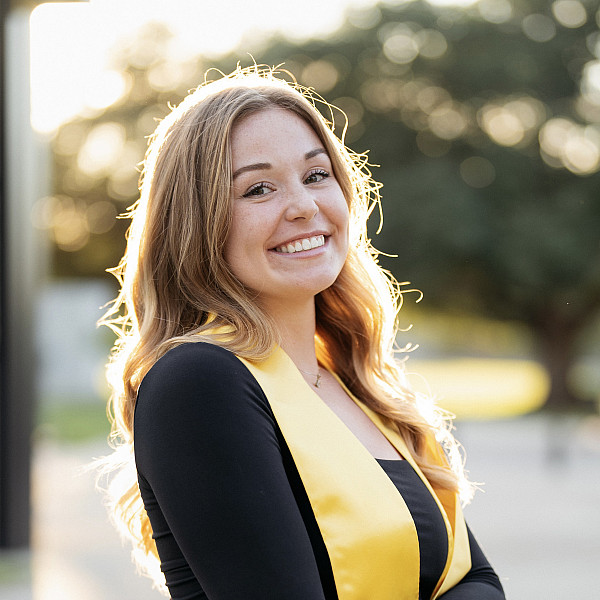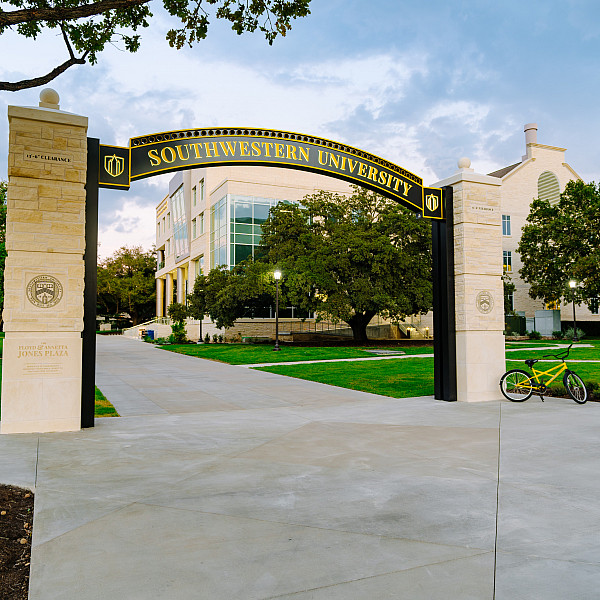News
Amiel Padayhag ’20 Reflects on Her Experience Participating in the Fulbright U.S. Student Program in the Philippines
Anthropology and feminist studies alumna Amiel Padayhag ’20 earned a 2023-2024 Fulbright U.S. Student Program Award to conduct anthropological research in the Philippines. Explore her first-hand account of the experience below.
October 08, 2024
October 08, 2024
Open gallery

My homeland, the Philippines, had long called my name, and three years after graduating from Southwestern at the start of the pandemic, I found myself burnt out and raring for a change of scenery. I found that change through the Fulbright U.S. Student Program, which I learned about from my friend and former classmate Brielle Read ’20, who was awarded an English Teaching Assistantship for Uruguay in 2021. The Fulbright program in the Philippines offered nine-month research awards, so I started reaching out to Alexandra Anderson at the Center for Career & Professional Development and my former professors, Drs. Melissa Johnson, Alison Kafer, and Eric Selbin, for advice on the application process. With their help, I gradually crafted a competitive application to conduct anthropological research in Metro Manila on hilot panggamot, a form of traditional Filipino medicine that involves manipulating the body to facilitate healing. To my jubilation, I was notified I’d won in April 2023, and just four months later, I was Manila-bound.
The week I arrived in Manila, the weather was hot and sunny, not unlike the weather I was so used to baking under during Texas summers. Everything else, though, was a shock: the constant bump and bustle of the city streets, the thick snaking lines of traffic that sludged forward like molasses, the torrents of monsoon rain that swallowed up my ankles. I found speaking in Tagalog, one of the main languages in Metro Manila, the most painful adjustment. While I had studied it for almost two years prior, I was nowhere near conversational and struggled with basic skills like conjugating verbs and remembering common vocab.
Thankfully, my Fulbright cohort helped me adjust. We frequently met with one another over the course of our stay, sharing both our struggles and laughter over iced coffee and steaming plates of Filipino food. Those of us who already knew Tagalog also talked to and texted one another in it to keep up our language learning. Our hangouts served as my lifeline, especially during the first few months of the Fulbright when I was still adjusting to the groove of Metro Manila.
I was also developing my research project during this time. Although I had never undertaken one abroad before, I was supported by my research advisor at the University of the Philippines (UP) Diliman, Assistant Professor Felipe Jocano, Jr. He answered my questions, helped me craft and submit my research proposal, and (perhaps most importantly) boosted my confidence when I needed it. I remember lamenting to him during one of our check-ins that I just felt so confused all the time. He reassured me that that’s part of being an anthropologist. If you’re not confused, you’re not doing it correctly!
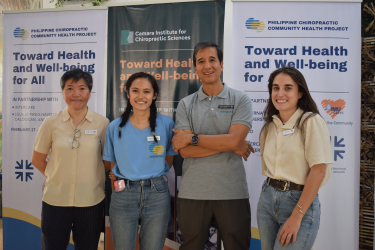
I also connected with the folks at the Philippine Chiropractic Community Health Project (PCCHP) while volunteering for their medical missions. To facilitate equitable access to chiropractic care, the PCCHP paired up with chiropractic interns from IMU Malaysia, who flew all the way to Metro Manila to provide their services to underprivileged communities and deepen their chiropractic skills. Observing the interns and their patients gave me a window into the challenges everyday Filipinos face to accessing healthcare. For example, I learned that chiropractic sessions in the Philippines typically range from ₱1,500 to ₱5,500 ($27 to $98), a hefty expense considering that Filipinos’ average monthly salary is ₱18,000 (approximately $320).
Hilot practitioners themselves aren’t exempt from dealing with similar such economic challenges, as I learned when I started observing and interviewing those living in and outside of Metro Manila. In Filipino culture, a hilot’s healing ability is considered god-given, so the skills of hilots who charge instead of only accepting donations are generally dismissed. Some are forced to charge, however, because they wouldn’t be able to sustain themselves and their families without doing so.
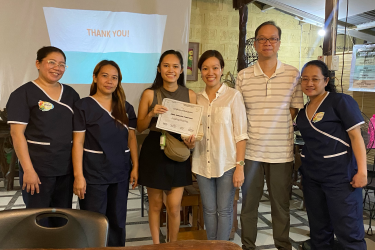
Reflecting on my Fulbright journey, I’m grateful to have met such wonderful people dedicated to uplifting me and others, from my Southwestern community to my fellow Fulbrighters to my network of Filipino mentors and hilots. They helped me realize my passion for health equity and justice, which led me to researching and writing for Tayo, the web help desk of the Filipino Young Leaders Program, to support public health in the Filipino American community. In continuing to advocate for accessible, affordable, and culturally-sensitive healthcare, I hope to carry this work and the lessons that I’ve learned during my Fulbright forward.
















